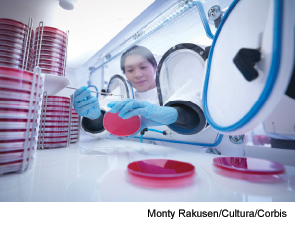
The search for biomarkers in rheumatoid arthritis (RA), ones that will predict which patients will respond to certain therapies, is often described as the search for the holy grail—long, frustrating, intense and elusive.
“Biomarkers in RA are hard to find. It’s as simple as that. And the real reason is that there is no simple biomarker,” says Eric Ruderman, MD, professor of medicine at Northwestern University Feinberg School of Medicine. “A lot of people think that what we call RA is really not one disease, but is a syndrome that involves a number of people who are going to have something different both phenotypically and genotypically.”
The field of biomarker research, therefore, moves slowly “because it’s very complicated. If it was easy, we would have had it by now,” he says.
Joel Kremer, MD, Pfaff Family Professor of Medicine at Albany Medical College, says that researchers remain unclear about what questions to ask in the search for predictive biomarkers, given that there are potentially tens of thousands of them. “The ideal biomarker would have an evaluable baseline, which predicts which drug the patient would do well on. But we are not close to that.
“We are really dipping our toes in a very large lake. The reason it is taking so long is that people are on a lot of fishing expeditions, and it’s very difficult to predict in advance a biomarker that is associated with a particular intervention,” Dr. Kremer says.
Outcomes of research cannot be predicted, he says. Even the early promise of individualized medicine that started with the human genome project “has really not paid the kinds of dividends that we anticipated. I think that science has embraced the idea that these areas are complex and multigenomic and, except for some rare, single-gene mutations that cause rare diseases, many of these diseases are multigenomic,” Dr. Kremer says.
Predicting Response to Therapy
The concept of biomarkers arose from single-cell mutational events, as seen in cancer, according to William F.C. Rigby, MD, professor of medicine at Geisel School of Medicine at Dartmouth. That prompted interest in finding surrogates of disease activity that are reflected in the blood stream or in DNA that can work in polygenic disorders, such as RA or psoriatic arthritis. “The challenge in these disorders is identifying biomarkers that are not epiphenomena,” he says.
Biomarkers can cover a multitude of indications, Dr. Rigby says. One kind of biomarker can make an early diagnosis of a disease; another could be used to predict an outcome of a disease, such as discriminating between RA that will be difficult to control and cause a lot of joint damage and a more indolent form of the disease; others could be used to predict responses to different types of therapy.

